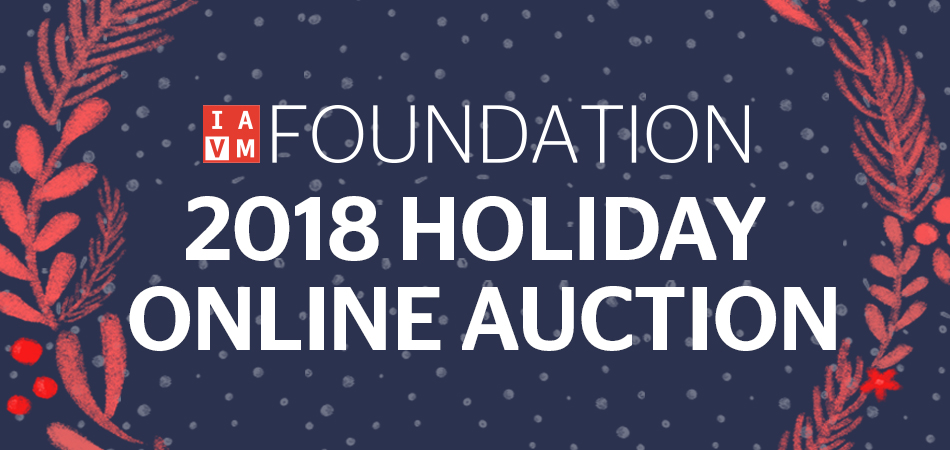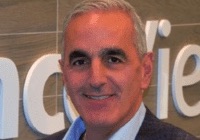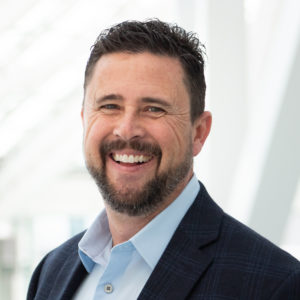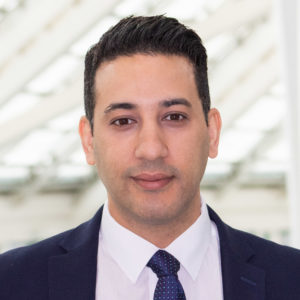Bid Now! Foundation Holiday Online Auction

Happy Foundation Friday!
The holiday version of the IAVM Silent Auction is now open for bids! If you are looking for some great tickets to shows, sports memorabilia, concert memorabilia, some bowl tickets and more, all while helping the Foundation provide professional development opportunities for IAVM members, the IAVM Foundation Online Holiday Auction is the place for you. All of the items listed would make someone a great Christmas gift!
Launched years ago as a live event at VenueConnect, the IAVM Foundation Silent Auction has evolved to include both an online version before and at VenueConnect and this extra holiday event, thanks to some great donations from IAVM members.
Proceeds from the auction will go towards the Foundation’s mission to increase the positive impact and vitality of the public assembly industry by funding research, education, and resource development.
So READY! SET! BID!
Thank you to our generous donors: American Airlines Center, City of Windsor, Portland’5 Centers for the Arts, Jim Whelan Boardwalk Hall, City of Dallas, Columbus Arena Sports and Entertainment, Tampa Sports Authority
Esports Stadium Arlington Debuts as Esports’ Largest, Most Robust Venue in North America
Esports Stadium Arlington (TX), the largest gaming and esports events facility in North America, celebrated its grand opening with FACEIT’s Esports Championship Series Season 6 Finals, a $750,000 prize pool tournament scheduled to coincide with Thanksgiving Weekend offering esports enthusiasts a new fan experience to complement the iconic football festivities of the season.
Located in the heart of Arlington’s entertainment district, Esports Stadium Arlington is a $10-million, 100,000 square-foot facility built to serve the unique and technologically advanced demands of the esports industry.
Designed by award-winning architectural firm Populous and brought to life with build partner Shawmut Design and Construction,  the stadium features a competition space with a built-in 85 feet-long LED wall that’s accompanied by an immersive sound and theatrical lighting system.
the stadium features a competition space with a built-in 85 feet-long LED wall that’s accompanied by an immersive sound and theatrical lighting system.
“We applied 35 years of creating event venues to bring Esports Stadium Arlington to life, and it will undoubtedly be the place where people will love to gather for esports events,” said Populous Senior Principal Brian Mirakian. “The energy in the venue, being able to feel the excitement and pulse of the game and having the ability to powerfully connect players and fans signifies a new era for esports.”
A first-of-its-kind production facility equipped with Grass Valley systems will power event broadcasts, complete with a dedicated observer room, caster studio, data center, and control room. Players will be able to stay on top of their game by utilizing the dedicated Team Area which includes eight “Team Rooms,“ a space for players to strategize and practice, a “Player Lounge“ where players can relax and socialize as well as spaces created specifically for media and staff.
Esports Stadium Arlington’s flexibility gives it the ability to cater to a wide variety of audiences and event types. By
transforming previously underutilized space of the Arlington Convention Center, Esports Stadium Arlington also showcases the adaptive re-use potential of esports. The planned stadium will feature a major competition event space, gaming, retail, and social spaces, VIP hospitality, a broadcast studio, and team training areas.
“With Esports Stadium Arlington, we have positioned ourselves as both a national and international leader in the emerging esports industry,” said Arlington Mayor Jeff Williams. “I can’t wait for people to see this state-of-the-art facility, the largest and most flexible esports stadium in the country. The opportunity to provide jobs combined with growing tourism is phenomenal.”
“We are extremely excited to have partnered with an amazing city such as Arlington that shares our vision of building a foundation for growth in the competitive gaming ecosystem,” added Jonathon Oudthone, president of NGAGE Esports. “By working with FACEIT to host the ECS Season 6 Finals as our inaugural event, we will be able to show the world that our facility truly is one of a kind.”
AudienceView Names Lawrence Franco Chief Operating Officer
AudienceView announced the appointment of Lawrence Franco as Chief Operating Officer.
Franco brings more than 25 years of experience in B2B solutions with leading organizations to AudienceView. In his new role, he will activate the strategies for AudienceView’s growing global operations. Franco also has responsibility for day-to-day management of customer success, engineering and sales as well as AudienceView’s media division, which includes TheaterMania and WhatsOnStage.
He joins AudienceView from his role as President, North America of Global Knowledge, a worldwide leader in IT and professional  training. Franco’s background also includes executive-level roles with a variety of software and insights organizations, including Teranet and Dun & Bradstreet.
training. Franco’s background also includes executive-level roles with a variety of software and insights organizations, including Teranet and Dun & Bradstreet.
“Lawrence is a highly experienced operations executive with an impressive track record established over more than two decades in the technology sector,” said Mark Fowlie, CEO for AudienceView. “His proven ability to develop leadership across departments in global organizations will be invaluable in our ongoing commitment to our customers and their success.”
“I am extremely excited to join AudienceView and build on the incredible momentum that the company has created,” Franco said. “I look forward to working with our talented team to capitalize on our deep technical and industry expertise to drive further efficiencies, support our customers in meeting their individual business goals, and further AudienceView’s growth objectives.”
Los Angeles Convention Center Hires VP of Operations and VP of Finance
The Los Angeles Convention Center (LACC), owned by the City of Los Angeles and managed by AEG Facilities, announced the appointment of Shaun Davis, CVP, as the new vice president of operations and Ben Zarhoud, CPA, as the new vice president of finance.
Davis joins the LACC from Salt Lake City, Utah, with more than 20 years of operations management experience. He most recently  served at the Mountain America Expo managed by SMG where he managed and directed all operations and previously worked as a senior business analyst at IPA, Energy Solutions Arena, Smiths Ballpark and R.B. Davis & Co.
served at the Mountain America Expo managed by SMG where he managed and directed all operations and previously worked as a senior business analyst at IPA, Energy Solutions Arena, Smiths Ballpark and R.B. Davis & Co.
 Zarhoud is local to Los Angeles with more than 13 years of experience in accounting and financial management. He recently served as senior director of finance at AXS, senior manager of finance at AEG and six years at Deloitte.
Zarhoud is local to Los Angeles with more than 13 years of experience in accounting and financial management. He recently served as senior director of finance at AXS, senior manager of finance at AEG and six years at Deloitte.
“I am excited to welcome both Shaun and Ben to the LACC executive team,” said Ellen Schwartz, general manager at the LACC. “I am confident their skills and experience will be outstanding additions to our facility.”
Conventions Generate $1.1 Billion to San Diego Regional Economy in FY18
A total of $1.1 billion in regional impact was generated into the San Diego economy as a direct result of conventions, meeting and events held at your San Diego Convention Center from July 1, 2017 through June 30, 2018.
The Convention Center’s Fiscal Year 2018 annual report is out, and shows that the venue is delivering on its purpose: to serve  as the region’s premier gathering place, hosting conventions, trade shows and community events that economically benefit the City of San Diego and advances our convention and tourism industry.
as the region’s premier gathering place, hosting conventions, trade shows and community events that economically benefit the City of San Diego and advances our convention and tourism industry.
A total of 785,460 attendees contributed $651 million in direct spending as a result of the 133 events that were held at the Convention Center. A total of $24.7 million in hotel and sales tax revenues were generated directly benefiting the City of San Diego’s general fund.
Of the total 133 events, 13 were medical meetings, the core business of the Convention Center. Seven of those meetings landed in the year’s top 10 economic generators. Comic-Con International sits at the top of the list, contributing $147 million alone over the four days it was hosted during FY18.
“Your San Diego Convention Center helps drive business to local retailers, attractions, restaurants, hotels and special event venues,” said San Diego Convention Center President & CEO Rip Rippetoe, CVE. “Our job is to host events and bring people to San Diego – events that produce a ripple effect into the economy that reaches across the county. Our promise is to provide outstanding customer service, exceeding expectations, so that our customers will want to come back over and over again, further investing in San Diego.”
Rippetoe likes to say that each week we build – or help facilitate the building of – “small cities” for the most important week of our customer’s year. Visitors come to our destination to learn, connect and create, then they take their tourism dollars out into the destination.
“The more tourists we have in San Diego, the more sales tax and tourism occupancy tax dollars are generated, which benefit our city and our region,” Rippetoe said.
Do you want to receive a Front Row News weekly digest?
Categories
- Allied (856)
- Architecture (147)
- Arenas (744)
- Career (890)
- Convention Centers (889)
- Education (608)
- Events (1,528)
- Food & Beverage (193)
- Foundation (113)
- Guest Experience (1,482)
- Industry News (2,253)
- Leadership (1,872)
- Marketing (150)
- Membership (1,985)
- Music (212)
- Performing Arts Centers (453)
- Professional Development (398)
- Research (127)
- Safety & Security (425)
- Sports (763)
- Stadiums (607)
- Student (159)
- Technology (515)
- Ticketing (92)
- Touring (82)
- Trends (357)
- Uncategorized (771)
- Universities (216)
- Video (25)
- Young Professional (198)
Twitter Feed
- Twitter feed loading
Recent Posts
- GEODIS Park Selects Allied Universal As Its Preferred Event Services Provider
- Venuworks Appoints Marc Solis as Executive Director of the Fresno Convention and Entertainment Center
- Los Angeles Convention Center Diverts 8,000 Pounds of Wood Waste to Local Foundation Supporting Fire Victims
- Fort Worth Unveils Plans for Phase 2 of Convention Center Transformation
- San Diego Convention Center CEO Announces Retirement After a Decade of Leadership
Categories
- Allied
- Architecture
- Arenas
- Career
- Convention Centers
- Education
- Events
- Food & Beverage
- Foundation
- Guest Experience
- Industry News
- Leadership
- Marketing
- Membership
- Music
- Performing Arts Centers
- Professional Development
- Research
- Safety & Security
- Sports
- Stadiums
- Student
- Technology
- Ticketing
- Touring
- Trends
- Uncategorized
- Universities
- Video
- Young Professional
Archives
- February 2026
- January 2026
- December 2025
- November 2025
- October 2025
- September 2025
- August 2025
- July 2025
- June 2025
- May 2025
- April 2025
- March 2025
- February 2025
- January 2025
- December 2024
- November 2024
- October 2024
- September 2024
- August 2024
- July 2024
- June 2024
- May 2024
- April 2024
- March 2024
- February 2024
- January 2024
- December 2023
- November 2023
- October 2023
- September 2023
- August 2023
- July 2023
- June 2023
- May 2023
- April 2023
- March 2023
- February 2023
- January 2023
- December 2022
- November 2022
- October 2022
- September 2022
- August 2022
- July 2022
- June 2022
- May 2022
- April 2022
- March 2022
- February 2022
- January 2022
- December 2021
- November 2021
- October 2021
- September 2021
- August 2021
- July 2021
- June 2021
- May 2021
- April 2021
- March 2021
- February 2021
- January 2021
- December 2020
- November 2020
- October 2020
- September 2020
- August 2020
- July 2020
- June 2020
- May 2020
- April 2020
- March 2020
- February 2020
- January 2020
- December 2019
- November 2019
- October 2019
- September 2019
- August 2019
- July 2019
- June 2019
- May 2019
- April 2019
- March 2019
- February 2019
- January 2019
- December 2018
- November 2018
- October 2018
- September 2018
- August 2018
- July 2018
- June 2018
- May 2018
- April 2018
- March 2018
- February 2018
- January 2018
- December 2017
- November 2017
- October 2017
- September 2017
- August 2017
- July 2017
- June 2017
- May 2017
- April 2017
- March 2017
- February 2017
- January 2017
- December 2016
- November 2016
- October 2016
- September 2016
- August 2016
- July 2016
- June 2016
- May 2016
- April 2016
- March 2016
- February 2016
- January 2016
- December 2015
- November 2015
- October 2015
- September 2015
- August 2015
- July 2015
- June 2015
- May 2015
- April 2015
- March 2015
- February 2015
- January 2015
- December 2014
- November 2014
- October 2014
- September 2014
- August 2014
- July 2014
- June 2014
- May 2014
- April 2014
- March 2014
- February 2014
- January 2014
- December 2013
- November 2013
- October 2013
- September 2013
- August 2013
- July 2013
- June 2013
- May 2013
- April 2013
- March 2013
- February 2013
- January 2013
- May 2012
- March 2012
- December 2011
- November 2011
- October 2011
Recent Comments
- Frank Bradshaw, Ph.D., CVE on John Meyer, CVE, a Tireless Advocate of Certification for Venue Professionals, Has Died
- Neil Sulkes on Hilary Hartung, Friend to Many in Venue Marketing, Has Left Us
- Jason Parker, CVE on The Devastation of Hurricane Helene and How We Can Support One Another
- Larry Perkins on Touhey Testifies Against Speculative Ticketing Before Congressional Subcommittee
- Peter Secord on Major Players for Planned Elkhart Amphitheater Were in the Mix at VenueConnect
